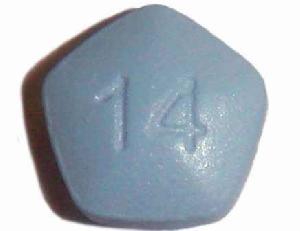City resident shares story in honor of World MS Day
oral medication tranforms her quality of life
In September 2009, Leslie Ferrier was readying for a new job as human resource director for a skin care company in the city. But within a few days the first symptoms of Multiple Sclerosis [MS] would change the course of her life.
“It started in my legs,” Ferrier said. “It felt like ants were crawling up and down my legs but I thought it was just nerves.”
MS is a debilitating disease of the central nervous system that impedes the flow of information within the brain and between the brain and the body, according the National MS Society.
Today we join in World MS Day – a day when the global community comes together to raise awareness and campaign for the 2.3 million people across the world diagnosed with the disease.
For Ferrier, the initial progression of the disease happened quickly. By Friday she began to feel nauseated.
“I was in a meeting with the CFO when the room started to go dark and spin,” she said. “I thought I was going to faint.”
At first, Ferrier thought she had the flu but the next day she could not lift her right leg and by Sunday morning could not write her own name, she said. Ferrier was admitted into the hospital, believing she’d had a stroke but on Wednesday, the day she was to leave for Prague, she was undergoing a spinal tab.
The trip was a birthday celebration for her husband James McGlynn. The couple [shown at right], who settled in Asbury Park in 1994, were restoring their 100 year old Victorian-era home and had become world travelers. Avid animal lovers, they foster cats for the Monmouth County SPCA and rescue dogs. Ferrier is a Liberty Humane Society board member.
On Thursday morning, she was given the MS diagnosis.
“I was broken, distraught, overwhelmed and in a state a shock,” Ferrier said. “It was just raddling me to the core.”
Now faced with the uncertainty of a debilitating disease, Ferrier would have to find the strength to face a rare but very real phobia – the fear of needles. Medical reports like the one written by Dr. James Hamilton in The Journal of Family Practice estimates 10% of the population suffer from the phobia in such a way that it causes them to avoid medical treatment.
“I had a breakdown,” Ferrier said. “I sobbed into my husband’s arms. I said I can’t do it. I can’t be in a wheelchair, I cannot have the life I planned for myself. You have to help me end this.”
As luck and tenacity would have it, Ferrier was able to land an appointment with Dr. Mary Ann Picone, Neurologist and Medical Director of the Holy Name Medical Center’s MS Center in Teaneck.
While her treatments began with injections, administered every other day for three years, medical advances led to an oral regimen. Today, a small 14 millimeter blue pill called Aubagio [below] has kept Ferrier’s disease progression at bay.
Picone said, while there are 14 different treatments for those with MS, only two available in pill form.
“For patients who have either had difficulty with injectable therapies or who continue to show signs of disease active, Aubagio provides another treatment option,” Picone said. “Before Aubagio there was just one oral therapy but the problem with that is some patients cannot tolerate it because of other medical issues.”
That was the case for Ferrier whose heart rate dropped immediately after taking Gilenya, the first oral medication introduced to market.
“Aubagio decreases the number of flare up with MS,” Picone said. “It’s helping to prevent new lesions in the brain and to slow down the disability’s progression – that’s really next to a cure, which we don’t have yet.”
No one knows definitively the cause of MS, be it viral or environmental, but those who are genetically susceptible may have had exposure to Epstein Bar virus like mononucleosis, Picone said. The disease develops within the early 20s to 40s age group.
“One of the key things about MS nowadays, compared to 20 years ago, is that there is greater awareness, more treatments, and it’s diagnosed early,” Picone said. “People are a living longer, better quality of life.”
Ferrier said the oral medication’s impact is unmeasurable. Today, she’s still working as a Human Resource executive but now it’s for an organic restaurant group based in Manhattan with 85 restaurants across the United States. The couple owns seven cats and a dog named Sweet Potato. Their world travels continue sans, needles, auto immune injectors, and sharps bins.
“The drug completely changed my paradigm about the disease,” Ferrier said. “I don’t even think of myself as a sick person anymore.
“Before the shots equated with the sickness,” she said. “Now my husband and I don’t fight about me taking a shot or not taking the shot. I got all that time back spent figuring out when I’m dining with friends [in relation to] when I have to take a shot.”
About Aubagio:
• Aubagio is made by Genzyme, a Sanofi company
• Aubagio (teriflunomide) is a once-daily pill approved by the FDA for the treatment of patients with relapsing forms of multiple sclerosis (the most common form of MS)
• Aubagio is the only oral treatment to significantly slow progression of disability in two Phase III studies of patients with relapsing form of MS and to have positive data on early MS in its label.
• Aubagio can be taken at any time of day, any place, with or without food. It doesn’t need to be taken at the same time of day.
• Aubagio is an immunomodulator with anti-inflammatory properties. Although the exact mechanism of action for Aubagio isn’t fully understood, it may involve a reduction in the number of activated lymphocytes in the central nervous system.
• Activated lymphocytes, including T- and B-cells, help your body fight disease. In MS it’s thought that some of our T- and B-cells get the wrong signal and attack the nerves of the central nervous system (CNS), which includes the brain and spinal cord. If these areas become damaged, they may form scar tissue. These scars or legions interfere with important nerve impulses. By blocking the overactive immune cells, damage can be limited.
• Aubagio is supported by one of the largest clinical programs of any MS therapy, with more than 5,000 trial participants in 36 countries.
• Additional information, including detailed safety information, can be found on the drug’s website.
——————————–
Follow the Asbury Park Sun on Facebook, Twitter and Instagram.















